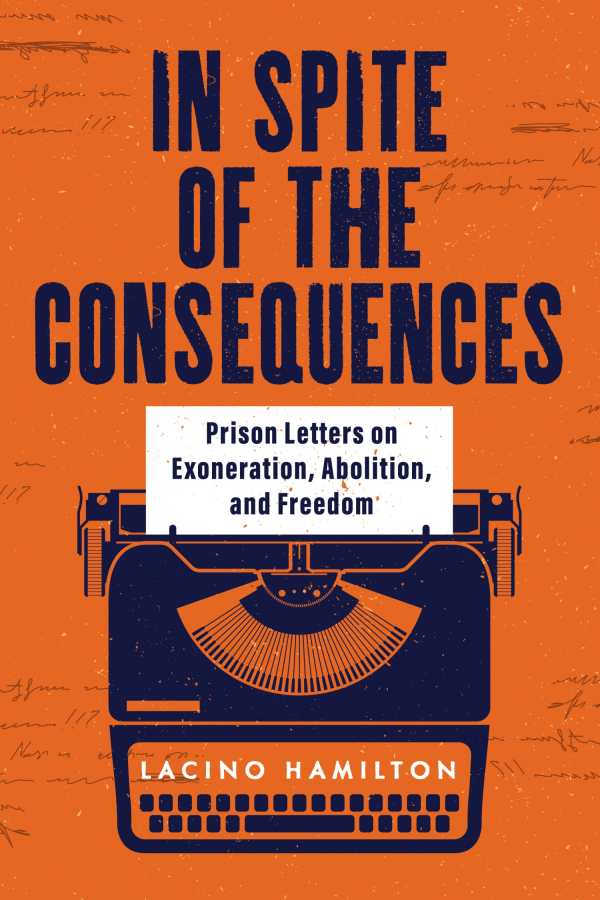In Spite of the Consequences
Prison Letters on Exoneration, Abolition, and Freedom
In Spite of the Consequences is Lacino Hamilton’s blistering indictment of the outsized American prison system.
An unjust conviction sent Hamilton to prison for twenty-six years before he was exonerated. Selections from thousands of letters that he wrote to different friends, family members, lawyers, and advocates illustrate his self-education: in prison, he became an intellectual activist for the abolition of mass incarceration. He also describes a barbaric prison-industrial system with the frank admonition “I hope you do not enjoy what you’re about to read.”
The epistolary narrative is a passionate, effective way to present Hamilton’s odyssey from a dysfunctional Detroit childhood in which schools and role models failed him through to his determined efforts to gain knowledge and win his freedom. He was steadfast in choosing not to accept abuse from guards and prison officials and to press on with advocacy for prisoner’s rights “in spite of the consequences.” Indeed, Hamilton’s strong will can be hard to match; Hamilton admonishes his correspondents when they suggest that he modify his words and actions, and he reserves the harshest words and outrage for his parents when they advise him to “be good.”
The result is a bleak, brutal portrait of ugly prison conditions, full of “isolation, monotony, loneliness or assiduous misery.” Hamilton indicts policies that reserve justice “for those who can purchase it,” warehousing poor people and minority populations. Several direct, spare, and eloquent letters focus on the special harms inflicted on women and migrant inmates. And the horrors of Hamilton’s lengthy terms of solitary confinement and of the long-term physical and mental damage to prisoners are described with passionate outrage.
Persuasive and passionate, In Spite of the Consequences envisions no less than a wholesale abolition of prisons in favor of adopting community-based governance and restorative-justice principles.
Reviewed by
Rachel Jagareski
Disclosure: This article is not an endorsement, but a review. The publisher of this book provided free copies of the book to have their book reviewed by a professional reviewer. No fee was paid by the publisher for this review. Foreword Reviews only recommends books that we love. Foreword Magazine, Inc. is disclosing this in accordance with the Federal Trade Commission’s 16 CFR, Part 255.

